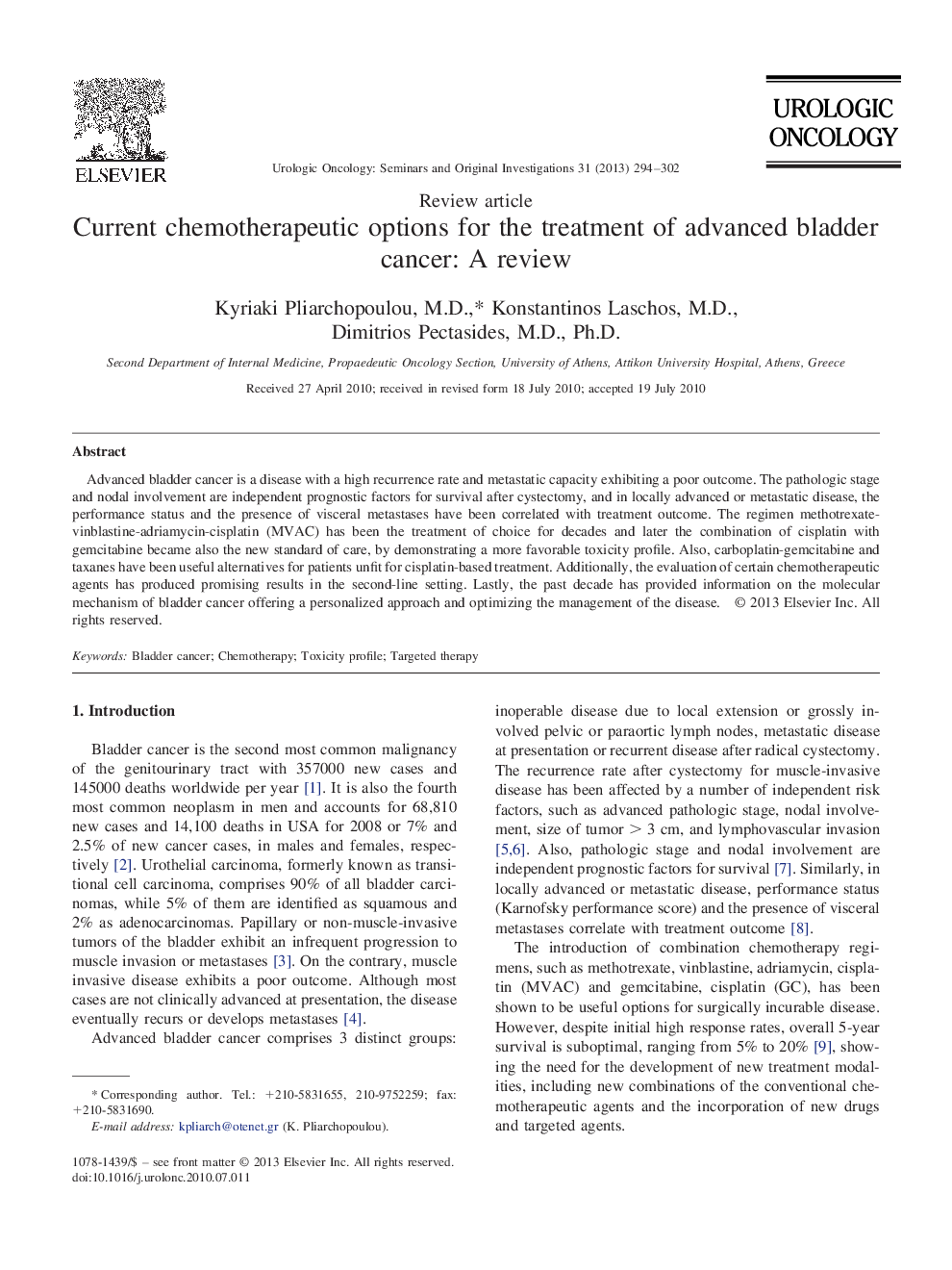| Article ID | Journal | Published Year | Pages | File Type |
|---|---|---|---|---|
| 6194551 | Urologic Oncology: Seminars and Original Investigations | 2013 | 9 Pages |
Advanced bladder cancer is a disease with a high recurrence rate and metastatic capacity exhibiting a poor outcome. The pathologic stage and nodal involvement are independent prognostic factors for survival after cystectomy, and in locally advanced or metastatic disease, the performance status and the presence of visceral metastases have been correlated with treatment outcome. The regimen methotrexate-vinblastine-adriamycin-cisplatin (MVAC) has been the treatment of choice for decades and later the combination of cisplatin with gemcitabine became also the new standard of care, by demonstrating a more favorable toxicity profile. Also, carboplatin-gemcitabine and taxanes have been useful alternatives for patients unfit for cisplatin-based treatment. Additionally, the evaluation of certain chemotherapeutic agents has produced promising results in the second-line setting. Lastly, the past decade has provided information on the molecular mechanism of bladder cancer offering a personalized approach and optimizing the management of the disease.
